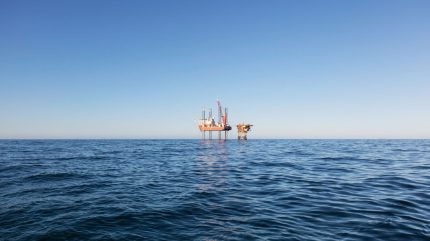
Norway’s oil and gas company Vår Energi has discovered commercial oil and gas with gross recoverable resources of 18–39mboe in the North Sea, near the Norwegian coast.
This discovery is near the partially electrified Gjøa platform, operated by Vår Energi.

Discover B2B Marketing That Performs
Combine business intelligence and editorial excellence to reach engaged professionals across 36 leading media platforms.
The Cerisa exploration well, along with previous discoveries in Gjøa North and Ofelia/Kyrre, connects to the Gjøa field using existing infrastructure, said the company in a statement. The field has an estimated total recoverable resource of up to 110mboe.
The Cerisa discovery is 17km north-east of the Vår Energi-operated Gjøa platform and 5km from the Duva subsea template. The Gjøa field is approximately 80km south-west of Florø on the Norwegian coast
Torger Rød, Vår Energi’s COO, said the discovery: “Demonstrates the potential to unlock further resources in the area and adds to the value accretive synergies resulting from the Neptune transaction.”
He added that it adds more “high-value, low-carbon barrels, supporting our target to deliver 350,000–400,000 barrels of oil equivalent per day from 2025 and beyond.”

US Tariffs are shifting - will you react or anticipate?
Don’t let policy changes catch you off guard. Stay proactive with real-time data and expert analysis.
By GlobalDataOver the past five years, Vår Energi has maintained a discovery rate of more than 50%, with finding costs of less than $1 per barrel post-tax.
The Cerisa discovery is currently being integrated into the Gjøa North and Ofelia/Kyrre project team to facilitate the rapid development of these four discoveries for production, Vår Energi said in the statement.
The Cerisa exploration well and three side-track appraisal wells were drilled by the semi-submersible drilling rig Deepsea Yantai. According to the company, none of the wells encountered oil-water contact, suggesting a potential upside to the estimated resource range.
However, the discovery is likely to draw fire from environmentalists, who are looking for ways to move away from exploration in the region. In March, climate activists in four nations blocked entry to North Sea oil infrastructure as part of a synchronised pan-European nonviolent protest.
Oil and gas terminals were blocked in Germany, the Netherlands, Norway and Sweden, with activists protesting the ongoing extraction of North Sea fossil fuel reserves.
Despite much controversy over oil and gas discoveries in the North Sea, this discovery presents a potential opportunity for resource expansion, as the absence of oil-water contact in the drilled wells indicates the potential for increased oil reserves.





